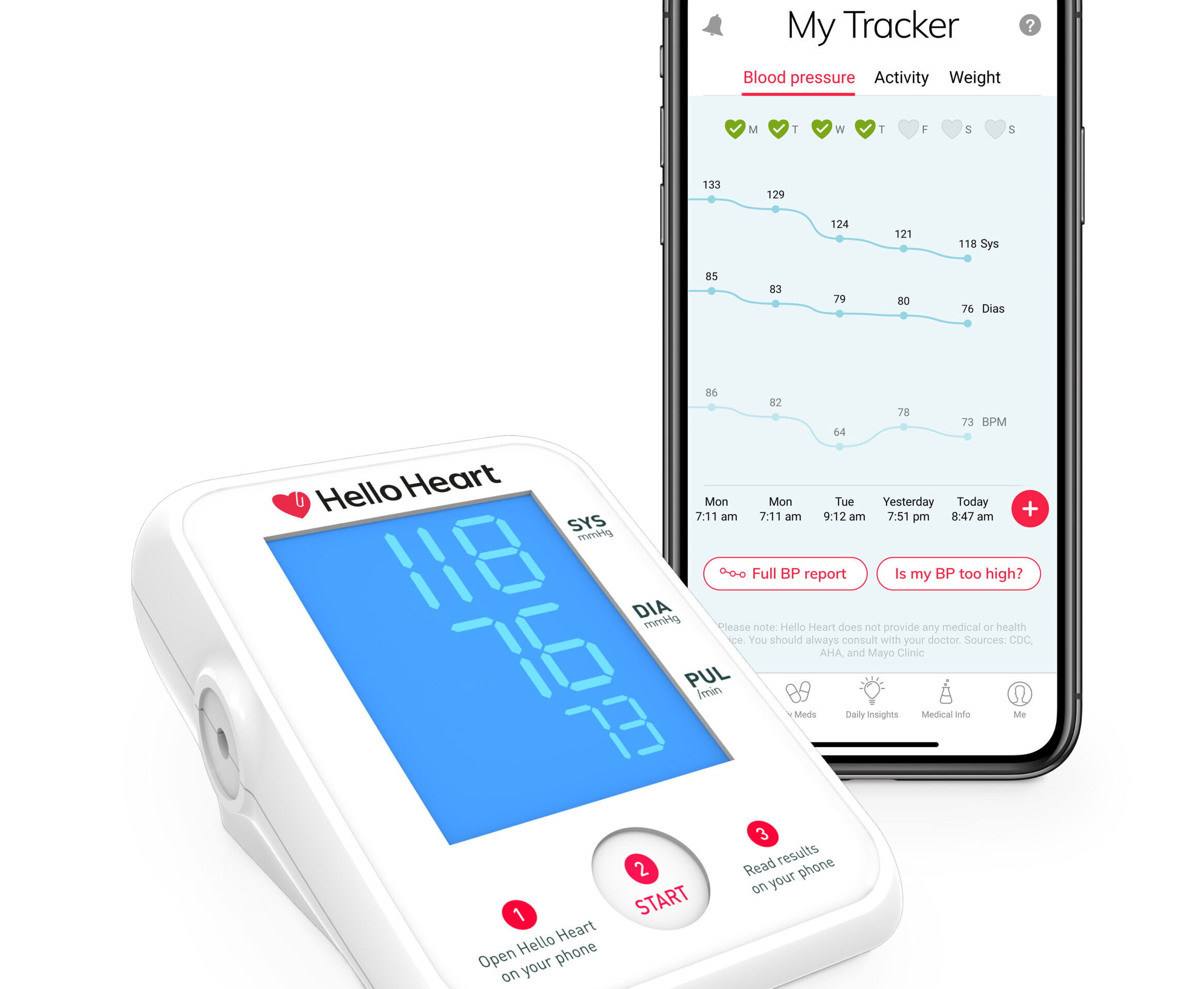
Hello Heart’s platform lets users track their blood pressure over time using a connected monitor.
As the role of remote patient monitoring to manage chronic disease has grown during the pandemic, demand for digital health solutions like Hello Heart has also increased. On Monday, the Menlo Park, California-based startup focused on heart disease and hypertension announced it raised $70 million to serve its rapidly growing customer base.
The Series D funding round was led by growth equity firm Stripes. The latest haul brings the total amount the company has raised since its founding in 2013 to $138 million, and adds to the $45 million Series C round it closed in May last year.

Behavioral Health, Interoperability and eConsent: Meeting the Demands of CMS Final Rule Compliance
In a webinar on April 16 at 1pm ET, Aneesh Chopra will moderate a discussion with executives from DocuSign, Velatura, and behavioral health providers on eConsent, health information exchange and compliance with the CMS Final Rule on interoperability.
“The company is experiencing tremendous growth,” said Maayan Cohen, co-founder and CEO of Hello Heart, in an email. “The funding will allow us to further fuel that growth.”
Cohen said Hello Health has doubled its client base in the last three months alone. The company now has more than 60 employer clients, including several Fortune 500 companies, Cohen said, though she didn’t name the companies.
Looking ahead, Hello Heart is also planning to expand the capabilities of its digital solution, such as adding cholesterol tracking and expanding digital coaching offerings, she said.
To improve heart health, Hello Heart’s smartphone-based solution uses artificial intelligence, behavioral science and personalized digital coaching to help individuals make lifestyle changes to control their blood pressure. It also helps users catch readings that are extremely high, and encourages them to talk to their doctor before they have a major event like a heart attack.

A Deep-dive Into Specialty Pharma
A specialty drug is a class of prescription medications used to treat complex, chronic or rare medical conditions. Although this classification was originally intended to define the treatment of rare, also termed “orphan” diseases, affecting fewer than 200,000 people in the US, more recently, specialty drugs have emerged as the cornerstone of treatment for chronic and complex diseases such as cancer, autoimmune conditions, diabetes, hepatitis C, and HIV/AIDS.
In step with the Surgeon General’s Call to Action to get high blood pressure under control, the Centers for Disease Control and Prevention has suggested employers pick health plans that cover automated home blood pressure monitors.
Hello Heart’s own polling last year found 65% of benefits executives expected the use of remote monitoring to increase, and that’s been reflected in the strong demand the company is seeing from employers. Competitors, too, are capitalizing on that demand. Companies like Livongo and Omada also offer employers digital programs that can be used to manage chronic disease, including blood pressure.
For its part, Hello Heart touts its narrow focus on heart health alone, digital coaching and its evidence-based approach. Research supports the solution’s effectiveness not only for controlling blood pressure but employers’ healthcare costs as well.
“We are the only solution that focuses solely on heart health that has peer-reviewed studies with strong clinical outcomes and validated cost savings,” Cohen said. “There are solutions on the market that offer chronic disease management, including hypertension, but they lack the focus on heart, which is the leading cause of death and most costly disease.”
Photo credit: Hello Heart












